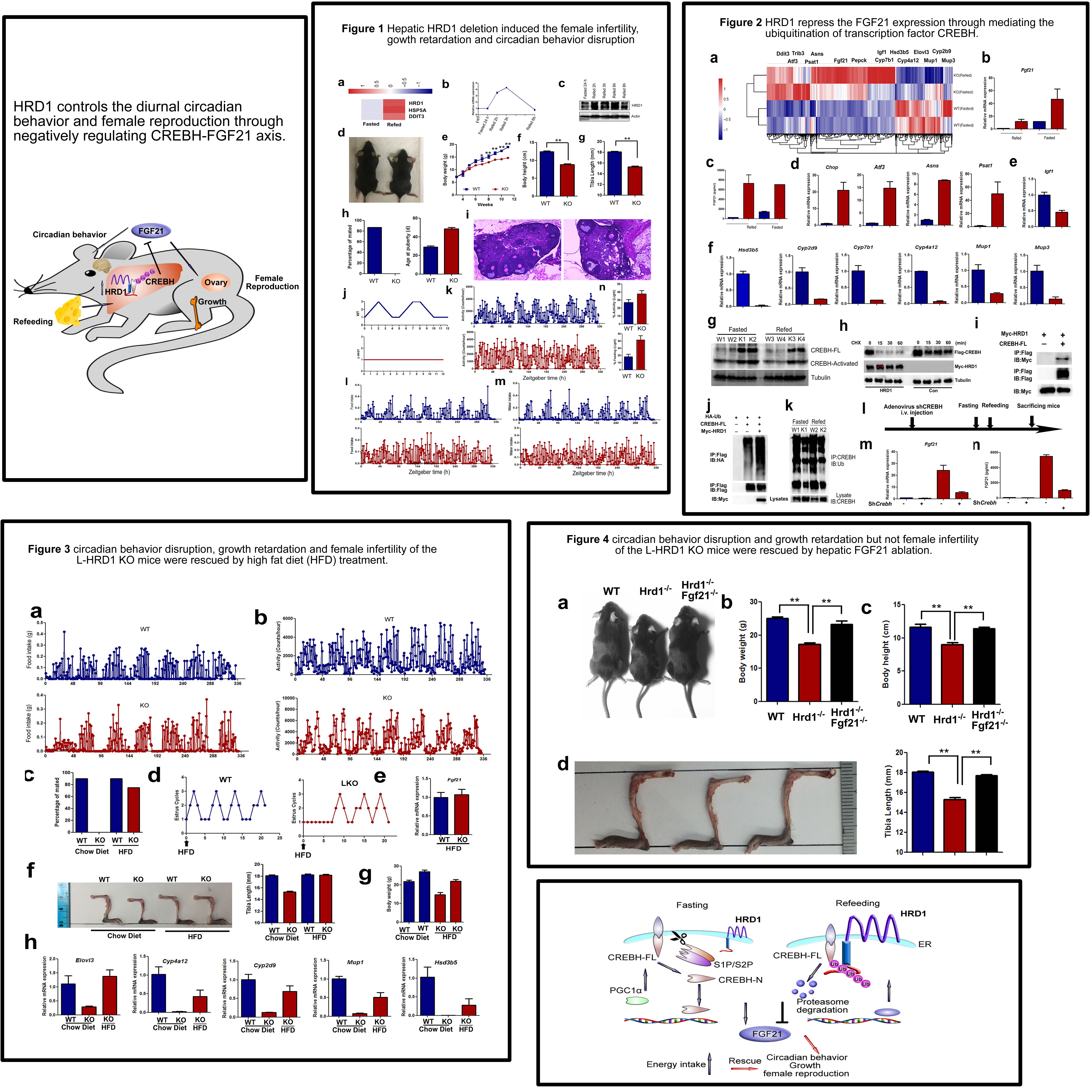Presenting Author:
Principal Investigator:
Department:
Pathology
Keywords:
HRD1, FGF21,Female reproduction, Circadian behavior, Growth, CREBH, Ubquitination
Location:
Third Floor, Feinberg Pavilion, Northwestern Memorial Hospital
B131 - Basic Science Women's Health Research
HRD1 controls circadian behavior and female reproduction through CREBH-FGF21 axis
HRD1 is an E3 ubquitin ligase in the endoplasmic reticulum (ER) -associated degradation (ERAD), a universal protein quality-control system in the cell; but its organ-specific physiological functions remain largely undefined. Here we showed that hepatic HRD1 was induced in the postprandial condition. Genetic HRD1 ablation specifically in hepatocyte alone (HRD1f/f Alb-Cre+) induced diurnal circadian behavior disruption including the severely fragmented activity and alteration of the rhythm of food and water intake. In addition, the growth of the HRD1f/f Alb-Cre+ mice was retarded and female HRD1f/f Alb-Cre+ mice were infertile when fed with the normal chow diet. But the phenotypes were rescued by the excess calories (high fat diet) treatment. Molecularly, FGF21 levels were dramatically increased in the livers and serum of the HRD1f/f Alb-Cre+ mice. As the negative regulator of FGF21 expression, HRD1 facilitated as the E3 ligase of the transcription factor CREBH to decrease its protein stability.

